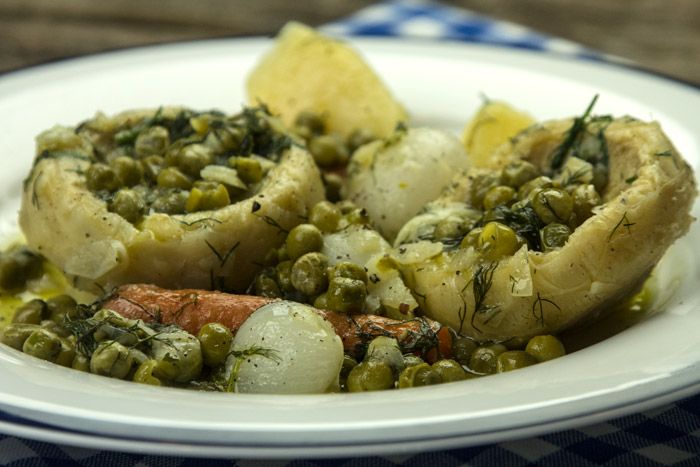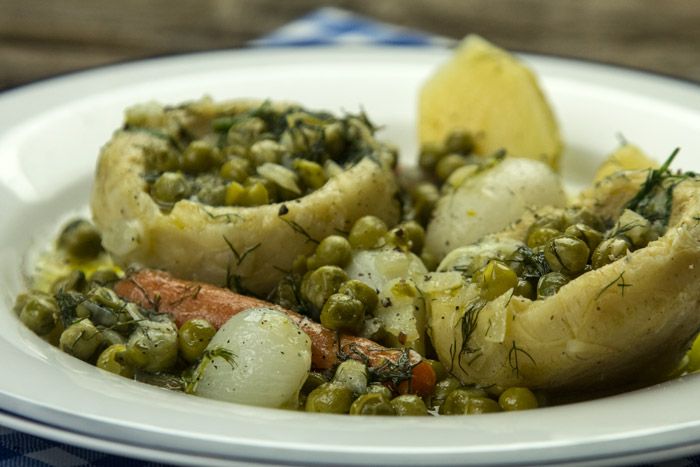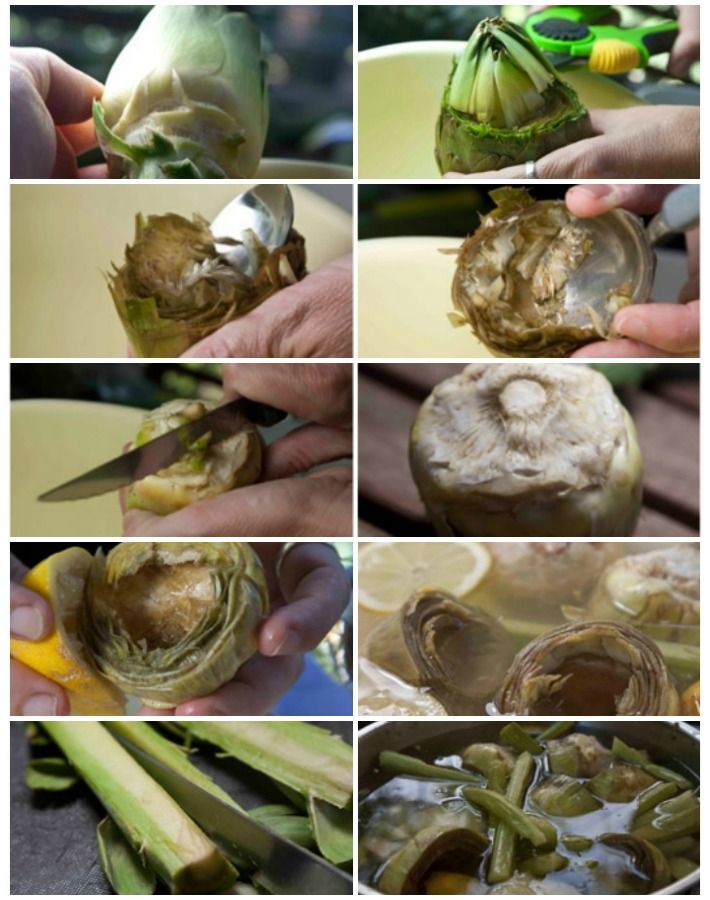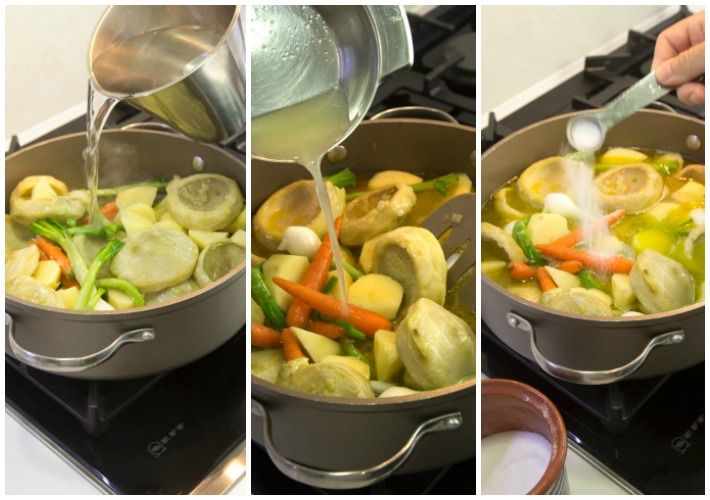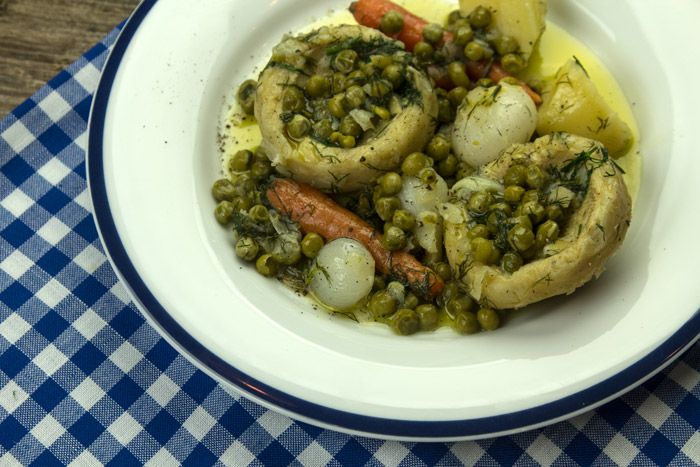One of my very favourite recipes for this time of year is Artichokes a la Polita, a famous recipe in Greece introduced by the most popular Greek chef of the twentieth century, Nicholas Tselemendes. He took a traditional artichoke recipe which had its origins in Constantinople (Istanbul today) and made his own version into one of the best-loved Greek recipes for springtime – when artichokes are in season.
Artichokes a la Polita are a classic example of Greek cooking which, due to the custom of extended periods of fasting during the year, are by tradition, both vegan and extremely healthy, while still bearing all the rich exuberant flavours of the Greek countryside!
The original recipe was made up of only artichokes, shallots, olive oil and lemon, but Nicholas Tselemendes added potatoes and carrots to the recipe, adding more layers of flavour to the dish. He gave it the name, “a la polita”, referring to the name with which Greeks refer to Constantinople, “i poli” or “the town”.
My more rustic version of Artichokes a la Polita follows his lead, but I also add peas, which lend texture and sweetness to the result to celebrate the freshness of spring.
The recipe:
This is a simple to make recipe, which is cooked in one pot and takes less than an hour. The instructions are written for use of frozen artichokes and peas, but you can certainly use fresh by adjusting the cooking time.
Ingredients (for 6 people)
600 gr. frozen artichokes (for fresh, see notes)
400 gr. potatoes, cut into 3 cm cubes.
150 gr. baby carrots (whole)
200 gr. shallots
100 gr. chopped onion
250 gr. frozen peas (for fresh, see notes)
20 gr. dill, finely chopped
2 lemons, juiced
1 tsp flour
Salt and pepper
100 ml. Greek virgin olive oil
900 ml. boiling water
Preparation:
1. Prepare the ingredients:
Cut the potatoes into 3 cm cubes, scrape the baby carrots (if needed), peel the shallots (ignore the pictures where the shallots are with their green stem, use bulbs alone), finely chop the dill and squeeze the lemons.
Note: If using fresh artichokes, remove the outer leaves and stems and, using a spoon, hollow out the inside of the artichoke flowers, removing the smallest leaves in the centre and creating a natural bowl. Soak in water mixed with the juice of one lemon to prevent blackening before you are ready to use them.
The ideal cooking pot for this recipe is one which is wide and shallow, because it gives a large surface area for sautéing and reducing the liquid and has enough room for stirring.
2. Sauté the artichokes and onions:
Pour enough olive oil to cover the bottom of the pan and put on a medium high heat setting on the hob. Once the olive oil is hot, sauté the frozen artichokes for 3-4 minutes to soften them. Then, add the chopped onion and the shallots and sauté for another 4 minutes, to begin to sweeten.
3. Sauté the carrots and potatoes:
Next, add the carrots, stir in the flour and the potatoes, and lightly sauté, stirring for another 4 minutes.
4. Boil the artichokes ala polita:
After sautéing the vegetables, add the boiling water, lemon juice, salt and pepper and allow to simmer for 30 minutes on a low heat, keeping the pan uncovered. As you approach the 30 minutes, test the vegetables with a fork to check that they are cooked through.
Note: For fresh artichokes and fresh peas, allow extra cooking time and test to make sure the artichokes are tender.
5. Add the peas:
The frozen peas come last because they only need the last 5 minutes of boiling time, by which time most of the water should have reduced and the sauce will have thickened. If however the sauce is too thin by that time, simply take out the vegetables to one side, reduce the sauce by turning up the heat and return the vegetables to the pan. Finally, add the chopped dill to infuse the pan with its fresh fragrance and after 2 minutes turn off the heat. It’s ready!
Serving:
Allow the food to cool down a little and serve after about 10 minutes, if you can withstand the mouthwatering aroma! The artichokes are best served with a generous drizzle of Greek extra virgin olive oil, a sprinkle of coarse sea salt and freshly ground black pepper.


